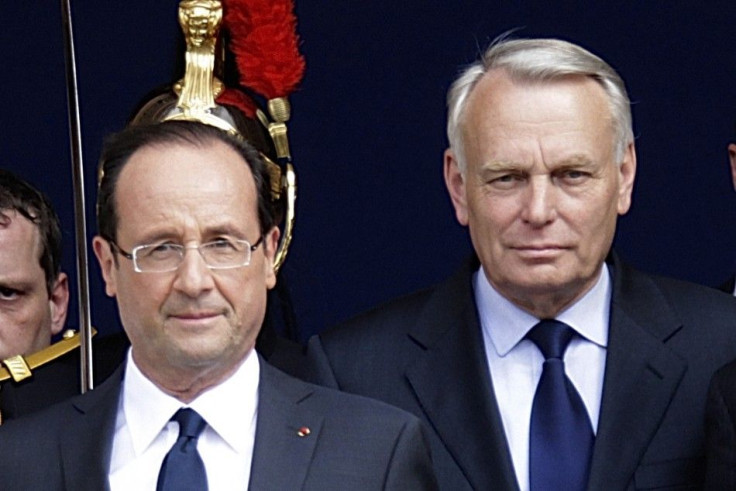France: Can Hollande Prevent Mass Layoffs?

French labor unions warned Francois Hollande's government that corporations are planning massive layoffs -- a development which could test the new president's economic mettle and further exacerbate already high unemployment in the country.
Meeting with union and business leaders on Tuesday, newly appointed Prime Minister Jean-Marc Ayrault was given a list of 46 companies -- ranging from automaker Peugeot Citron to home-goods superstore Conforama to steel mining company Arcelor Mittal to French banks reeling from the debt crisis -- that were planning on shutting down manufacturing operations and cutting up to 90,000 employees, according to Reuters.
Hollande has promised that as president he will create tens of thousands of public sector jobs, but he has yet to come up with a plan for mediating between unions and the private sector.
Union heads on Tuesday also demanded that Hollande raise the minimum wage, currently €9.22 ($11.55) an hour before tax, by 20 percent.
“We would like an increase to the minimum wage to show the will to help the lowest-paid employees, François Chérèque, the head of the French Democratic Confederation of Labour, or CFDT, France's biggest union by membership, stated on Tuesday.
There are too many people earning the minimum wage, he added.
Hollande had indeed promised to raise the minimum wage during his campaign, but many critics worry that a 20 percent bump would put undue strain on businesses, leading to even more layoffs rather than less.
It solves nothing linked to workers’ purchasing power,” Jean-François Roubaud, the president of the French federation of small and medium businesses, told Euronews.
“The real solution is to see how we can reduce overall labor costs and having the net wages of all employees increased.
Policies related to the national economy, and, more specifically the industrial sector, were the backbone of Hollande's presidential campaign, and the eventual outcome of the labor meetings, which are expected to be drawn-out until the start of a summit on social issues in July, will be critical for the new Socialist government.
There are many company chiefs and workers at need of a policy of industrial patriotism, in which we unite around our work and industrial instruments and our economic might to reconstruct our lost strength, Arnaud Montebourg, the Minister of Productive Recovery, stated last week.
Montebourg, who attended Tuesday's talks, has been given the task of preventing the industrial layoffs and is one liaison between the unions and the government.
In 2011, France's trade deficit reached an all-time high of €70 billion, leading to speculation that French corporations would aggressively cut costs by firing thousands of workers and slashing wages.
Prior to the May 6 election that gave the victory to Hollande, former President Nicolas Sarkozy had reportedly asked some corporate leaders to postpone any mass layoff until after the poll. Sarkozy, who espoused an American-style free-market capitalism, has long advocated rules to make it easier to fire employees.
But Hollande, whose campaign vowed to prevent huge layoffs and attracted labor union support, is now under the gun to come through on election promises.
French unemployment now stands at 10 percent, the highest level in almost 13 years.
© Copyright IBTimes 2025. All rights reserved.





















